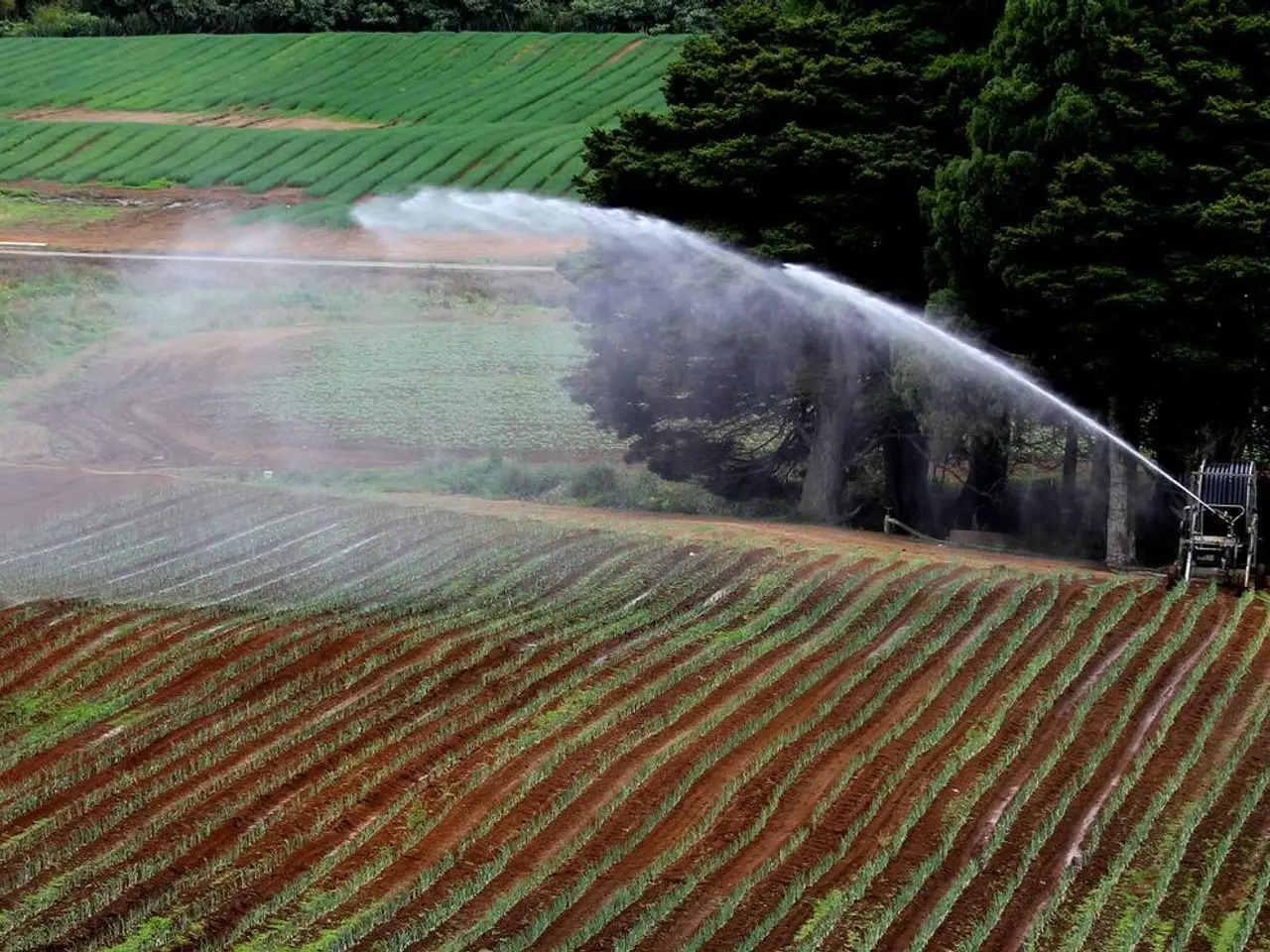Transforming Daily Routines Gradually Over Time
In the heart of southern Africa, the landlocked nation of Malawi is currently grappling with a severe food and nutrition crisis. The situation has been exacerbated by the recurring climate phenomenon known as El Niño, which has taken a toll on the country's agricultural sector.
Malawi, a nation experiencing rapid urbanization, is home to approximately 16 million residents, most of whom are smallholders living in rural areas. An extreme drought and torrential rainfall, both of which resulted in crop failures, have added to the strain on the food and nutrition situation. In response, rural residents have resorted to harvesting grass seeds for their children's porridge.
In an effort to alleviate this crisis, Welthungerhilfe (WHH) is actively working in Malawi to improve food and nutrition security. Their approach encompasses a combination of humanitarian assistance, anticipatory action, and long-term development programs aimed at sustainable change and strengthening community resilience.
WHH's efforts in Malawi are multifaceted. They have been recognised and localised, with WHH Malawi being honoured by Malawi’s President Lazarus Chakwera with awards for transparency and championing localization, reflecting strong local engagement and effective partnerships with donors and local actors.
The organisation also provides humanitarian assistance and preparedness, connecting crisis relief with recovery and preparedness by using risk analyses to anticipate extreme weather events and rapidly deploy emergency relief, including food, water, hygiene, and shelter. Their Emergency Response Team can be deployed within 48 hours to support local offices after disasters.
Moreover, WHH cares for vulnerable groups, having supported the establishment of a care center for children with physical and learning disabilities in Malawi’s largest refugee camp. This center benefits around 40,000 refugees, mostly from the Democratic Republic of Congo, Rwanda, and Burundi. The center provides activities to improve children's lives and parental support/training.
WHH also engages in collaborative global advocacy and initiatives, partnering with Concern Worldwide and other actors to launch the Global Hunger Index in Malawi. This advocacy seeks to influence policy and climate resilience strategies in Malawi, emphasising the intersection of climate change, gender equality, and hunger.
Despite these efforts, Malawi still faces about 5.7 million people at Crisis or worse food insecurity levels during lean seasons (October 2024 to March 2025). Before El Niño, Malawi's situation in the Global Hunger Index was categorised as "serious."
In summary, Welthungerhilfe’s approach in Malawi centres on anticipatory humanitarian action, local capacity building, emergency relief linked with long-term solutions, and advocacy addressing systemic drivers of hunger and malnutrition, with a visible commitment to transparency and localization. Their work reaches millions across 37 countries, including Malawi, with projects focusing on enabling people to produce and harvest more food, access clean drinking water, and improve child nutrition.
- The food and nutrition crisis in Malawi, exacerbated by climate change and El Niño, has led to rural residents harvesting grass seeds for their children's porridge, highlighting the urgent need for intervention.
- In addressing this crisis, organizations like Welthungerhilfe (WHH) focus on improving food and nutrition security, employing a combination of humanitarian assistance, long-term development programs, and anticipatory action, aiming for sustainable change and enhanced community resilience.
- WHH's efforts in Malawi extend beyond humanitarian assistance, as they also collaborate with local actors, champion transparency, and advocate for policies that address the intersection of climate change, gender equality, and hunger.
- Despite such interventions, Malawi continues to struggle with a significant number of people facing food insecurity levels considered at Crisis or worse, emphasizing the ongoing need for global efforts in health-and-wellness, environmental-science, lifestyle, food-and-drink, and nutrition to mitigate global hunger.




